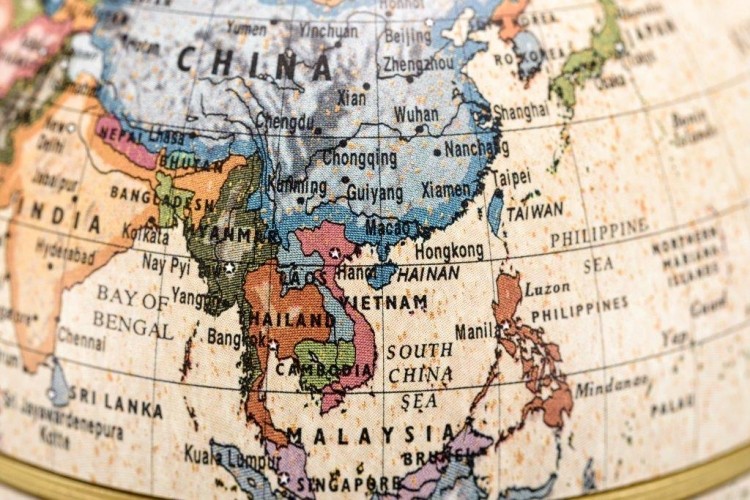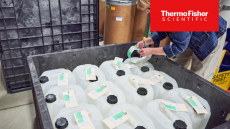Q&A
Cancer in the Asia-Pacific, a CRO perspective

We asked director of West Cancer Center and medical advisor to George Clinical, Lee Schwartzberg, about the development of cancer research and clinical trial recruitment in the Asia-Pacific region.
What is the current state of lifestyle diseases in Asia?
Cancer rates are increasing in Asia, largely as a result of the growing middle class, control of other causes of early mortality such as infection, and adoption of a western life-style.
Certain types of cancer, such as lung cancer, are expected to increase dramatically due to high smoking rates and pollution in industrialized areas.
Environmental factors, such as Hepatitis B infection, predispose to liver cancer in China and other parts of Asia.
Currently, Australia has a very high rate/population of cancer incidence compared to Western Europe and North America. China and Southeast Asia have moderate incidence, roughly half of Australia, but in light of the large population the absolute number of cancer patients is tremendous at approximately three million cases and 2.2 million deaths per year, while India has one million cases and 700,000 deaths per year.
Lung, breast, colorectal, prostate, stomach, liver and cervix represent the most common cancer diagnoses across the Asia-Pacific region, with some local variation.
Where is the demand for cancer research?
Cancer research is in great demand across the Asia-Pacific region. The infrastructure to conduct trials is variable, but increasing.
High resource countries such as Korea, Australia and Japan have ample operations and staff to conduct clinical research efficiently and it could be said this applies equally in Hong Kong, Taiwan and Singapore.
Perhaps most encouraging to the clinical trial industry is the rapidly developing capability in countries such as China and India, now providing access to huge patient populations in institutions that have built the necessary structure to enroll substantial numbers of cancer patients.
Easing of governmental regulations has allowed the conduct of clinical trials to accelerate.
While clinical trials are generally available for many different lines of therapy, the Asia-Pacific region is a good source of patients who are untreated.
Accruals can be rapid due to high throughput of many centers currently involved in cancer clinical research. The number of new agents undergoing testing currently is staggering. With the advent of immune-oncology, there are over one thousand active studies testing combinations of drugs in this class alone.
The demand far exceeds the current ability of research sites in western countries to enroll eligible candidates, so opening up new regions of the world is critical for the enterprise to succeed.
The rich source of patients from the Asia-Pacific region will help complete these trials and allow new agents to come to market faster and to benefit more patients.
How easy is it to recruit for clinical trials?
The ease of cancer clinical trial accrual is dependent upon many factors, starting with the patient population. Typically organized around a specific disease state, it is not difficult to find an abundance of patients with a given diagnosis who may be generally eligible for a trial.
In many cases however, specific inclusion or exclusion criteria may disqualify subjects who have a particular characteristic that does not fit the eligibility requirements.
In Asia-Pacific, the study’s standard of care arm, if such exists, may not be available or relevant to local care, rendering it unlikely to be a good fit for a site.
Increasingly, trials are focusing on molecularly defined subsets of patients with a particular genomic alteration within a disease state. For instance, contemporary trials are investigating the use of a new class of agents, the PARP inhibitors, in patients with breast or ovarian cancer who also have a mutation in the BRCA 1/2 genes.
Because widespread biomarker testing is just becoming available in developing countries, trials based on genomic alterations may face challenges. However, the study designs are often accommodating this reality by providing the molecular testing during screening which increases the acceptability of the trial since the patient and the provider derive additional clinical information from having this information.
Different genetic populations may display a difference in incidence of the mutation under investigation. In some cases, this is an advantage. For instance, Asian patients are more likely to have an alteration in non-small cell lung cancer which yields a richer population of potential trial candidates for drugs targeting this variant.
How is George Clinical contributing to developments in cancer research and clinical trials?
George Clinical, along with their parent company, The George Institute for Global Health, have for many years specialized in, and been recognized for their research into the treatment of traditional chronic diseases, excluding cancer.
During this time, however, more and more evidence is emerging about the striking similarities between many cancers, and chronic diseases. Increasingly, patients in clinical trials and on newer treatment modalities are living for extended periods, and management of the chronic nature of cancer is being embedded in research designs.
George Clinical’s unique focus on combining strong Scientific Leadership of trials with excellence in execution and delivery ensures that the changing face of trial design and clinical practice, particularly in the Asia-Pacific region are built into trial considerations from the start and throughout the study.
Developing greater ties with my organization, the West Cancer Center, through George Clinical US (formerly Vector Oncology Pharma Services Division) and by using our significant scientific leadership experience in cancer research, this will play a significant role in George Clinical’s treatment of cancer as a chronic disease, particularly in the Asia-Pacific.














